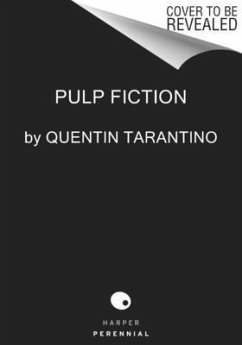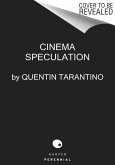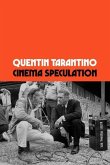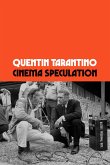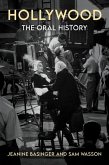"The screenplay for the cult classic film by the legendary writer-director returns to print in time for its thirtieth anniversary. Pulp Fiction is arguably the most influential American film of the 1990s. Winner of the Palme d'Or at the Cannes Film Festival, the 1994 Academy Award for Best Original Screenplay and later selected by the Library of Congress for preservation on the National Film Registry, Quentin Tarantino's second film was immediately hailed as a masterpiece ("a triumphant, cleverly disorienting journey through a demimonde that springs entirely from Mr. Tarantino's ripe imagination" -Janet Maslin, The New York Times). Now, on the heels of Tarantino's bestselling forays into both the novel and essay form, this iconic screenplay returns to print in a 30th anniversary edition"--
"That Tarantino's film reviews should turn out to be every bit as punchy, smart and surprising as his films should come as no surprise: In a sense he's been writing both for years. . . . Tarantino's critical intelligence both refracts and reflects. . . . Tarantino is an unabashed celebrant of cinema's dirtier pleasures." - Tom Shone, The New York Times Book Review
"Quentin Tarantino's first novel is, to borrow a phrase from his oeuvre, a tasty beverage...He's here to tell a story, in take-it-or-leave-it Elmore Leonard fashion, and to make room along the way to talk about some of the things he cares about - old movies, male camaraderie, revenge and redemption, music and style...In Once Upon a Time in Hollywood, Tarantino makes telling a page-turning story look easy, which is the hardest trick of all." - Dwight Garner, The New York Times
"Cinema Speculation is consistently engaging; with its zinging and zipping observations, its casual opinion-flinging, and its sharp-edged divisions of personalities and eras, it seems designed to arouse fruitful arguments. Like the experienced fictioneer that he is, Tarantino creates images and stories and scenes, tells tales that entice and bewitch even as they invite the same sort of criticism that his movies do. Above all, Cinema Speculation is a vision, in motion, of a Hollywood-centric mind." - Richard Brody, The New Yorker
"Classic, sparks-flying Tarantino...Tarantino's explosive dialogue, with its blend of streetwise and formal cadences, is almost as effective written down as read aloud...Far from being the throwaway artifact it sometimes pretends to be, Tarantino's first novel may even, as he's hinted, herald the start of a new direction for this relentlessly inventive director." - The Washington Post
"Quentin Tarantino's first novel is, to borrow a phrase from his oeuvre, a tasty beverage...He's here to tell a story, in take-it-or-leave-it Elmore Leonard fashion, and to make room along the way to talk about some of the things he cares about - old movies, male camaraderie, revenge and redemption, music and style...In Once Upon a Time in Hollywood, Tarantino makes telling a page-turning story look easy, which is the hardest trick of all." - Dwight Garner, The New York Times
"Cinema Speculation is consistently engaging; with its zinging and zipping observations, its casual opinion-flinging, and its sharp-edged divisions of personalities and eras, it seems designed to arouse fruitful arguments. Like the experienced fictioneer that he is, Tarantino creates images and stories and scenes, tells tales that entice and bewitch even as they invite the same sort of criticism that his movies do. Above all, Cinema Speculation is a vision, in motion, of a Hollywood-centric mind." - Richard Brody, The New Yorker
"Classic, sparks-flying Tarantino...Tarantino's explosive dialogue, with its blend of streetwise and formal cadences, is almost as effective written down as read aloud...Far from being the throwaway artifact it sometimes pretends to be, Tarantino's first novel may even, as he's hinted, herald the start of a new direction for this relentlessly inventive director." - The Washington Post

